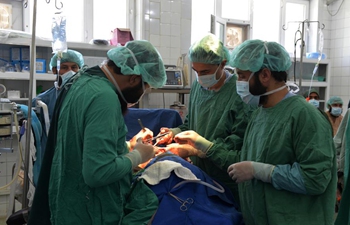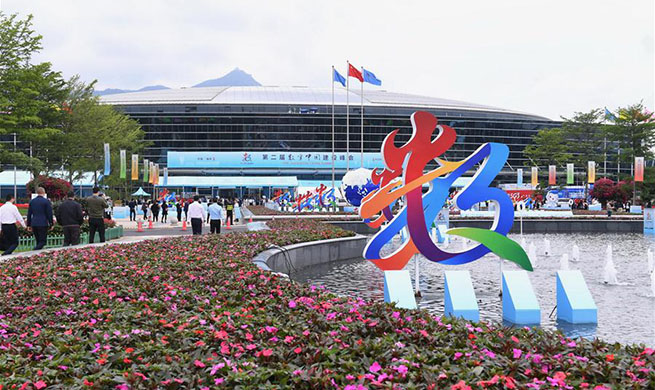HONG KONG, May 7 (Xinhua) -- Low-concentration atropine eye drops could reduce myopic progression for school children by up to nearly 70 percent, with much reduced side effects, according to a study done by the Chinese University of Hong Kong that made the result public on Tuesday.
Myopia, or shortsightedness, is the most common ocular disorder worldwide. Several international studies suggested atropine eye drops could slow down myopic progression in children, thus lowering the risk of sight-threatening eye diseases associated with high myopia.
However, the main concerns that deter the use of traditional atropine drops include the loss of focusing for near reading, and photophobia due to pupil dilation.
The university's Faculty of Medicine conducted the world's first randomized placebo-controlled, double-masked trial on low-concentration atropine eye drops to evaluate their efficacy and safety.
A total of 438 children aged 4 to 12 years with myopia in both eyes and documented myopic progression in the previous one year period were recruited in Hong Kong between 2016 and 2017. They were randomized to receive 0.05 percent, 0.025 percent, or 0.01 percent atropine, or placebo eye drops.
Findings proved that low-concentration atropine eye drops reduced both the spherical equivalent progression and axial length elongation that contribute to myopia.
Jason CS YAM, associate professor from the university's Department of Ophthalmology and Visual Sciences, said the study showed that the optimal low-concentration atropine eye drop should be the one with the best balance between efficacy and safety.
If the progression rate of myopia for a child is 1 diopter per year, the rate would have slowed down to 0.33-0.73 diopter per year after the use of low-concentration atropine eye drops, he said, adding that all three levels of low-concentration atropine used were well tolerated.
"And among the three levels of atropine concentration, 0.05 percent appeared to achieve the best balance between maximizing efficacy and minimizing side effects," Yam said.
These findings have been published in the international journal Ophthalmology.

















